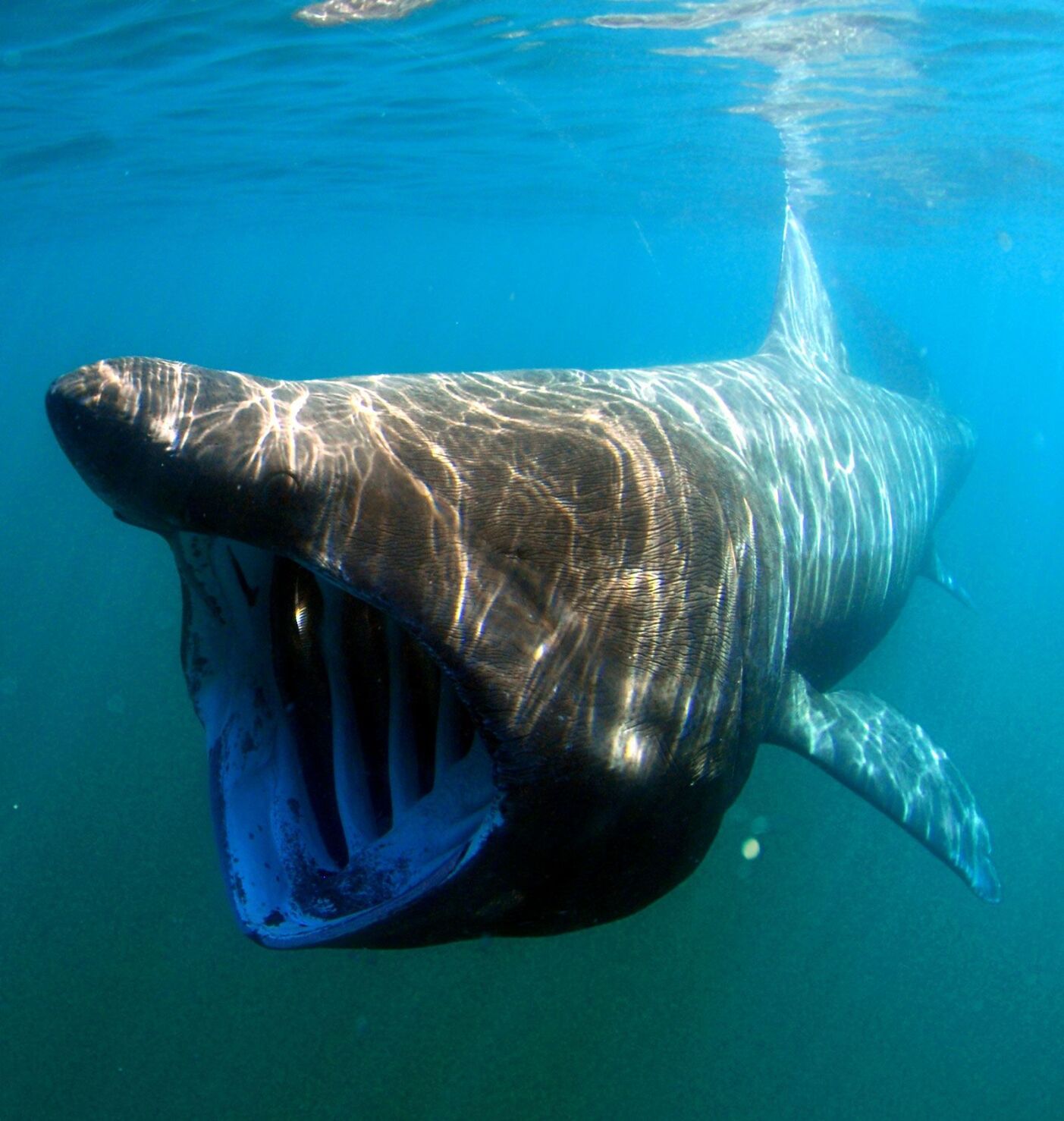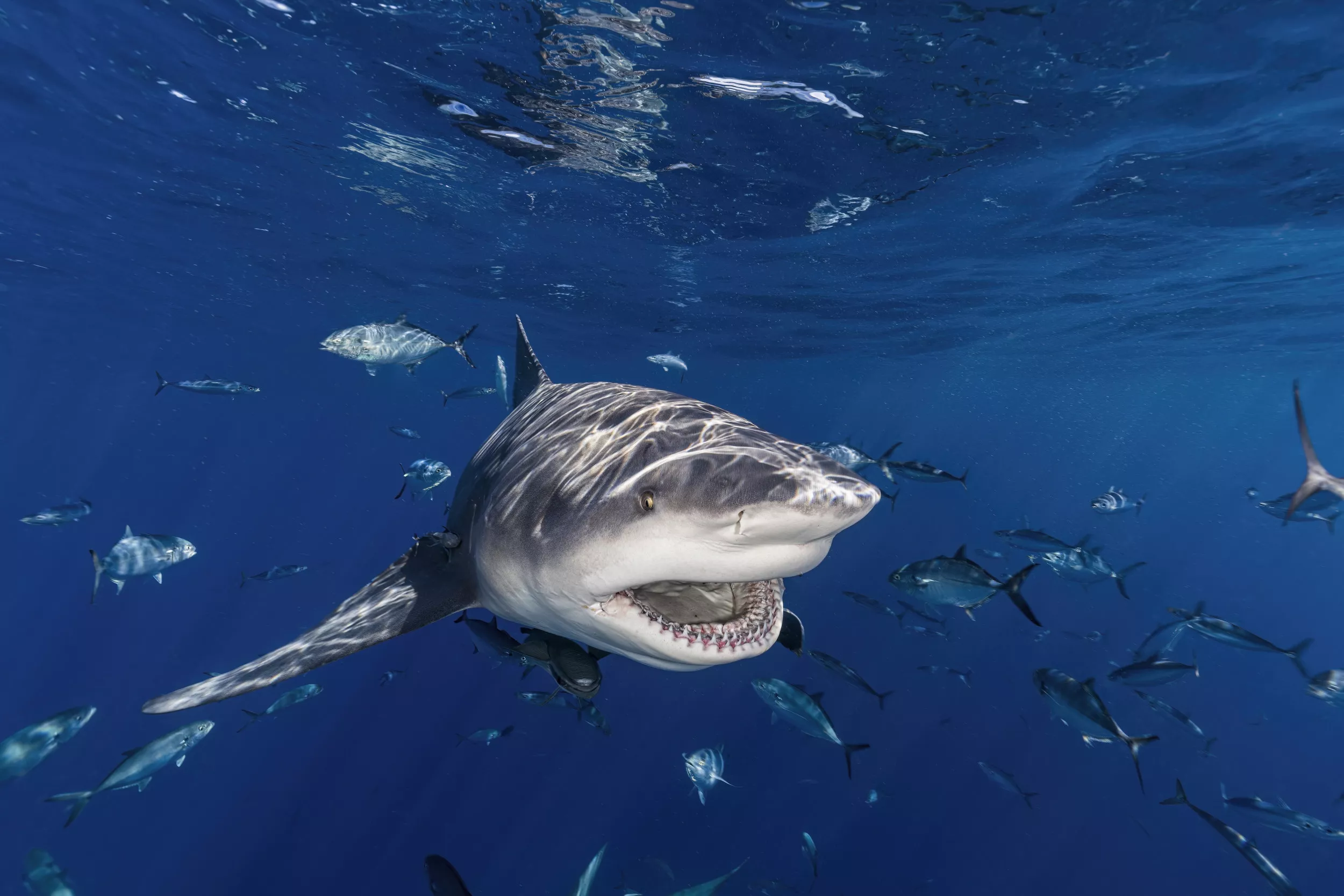Prepare to dive into the deep blue world of oceanic wonders, where danger and awe collide. Imagine this: a boat cruising through the vast ocean when suddenly—bam! A massive 23-foot shark gets involved in an unexpected encounter. This rare video footage has sent shockwaves through marine enthusiasts and adventure seekers alike. But what really happened? Let’s unravel the story behind this extraordinary event.
It’s not every day you come across a video that captures nature’s raw power in such an intense way. The moment a boat accidentally collides with a 23-foot shark is both terrifying and mesmerizing. This incident highlights the unpredictability of life at sea and the sheer size of these magnificent creatures. Whether you’re a marine biologist or just someone who loves thrilling stories, this tale is worth exploring.
So, buckle up and grab your snorkel because we’re diving deep into the details. From the science behind shark behavior to the rarity of this video, we’ll cover it all. And hey, if you’re thinking, “Could this happen to me?”—well, let’s find out!
Understanding the Incident: What Happened When the Boat Hit the Shark?
Alright, so here’s the scoop. The video, which has been making waves online, shows a boat traveling through open waters when suddenly a massive shark appears out of nowhere. In a split second, the two collide, creating a scene that’s equal parts shocking and breathtaking. But how did this happen? Was it an accident, or were there other factors at play?
Experts believe the shark, estimated to be around 23 feet long, may have been swimming near the surface when the collision occurred. Marine biologists suggest that large sharks, like the great white or tiger shark, often follow predictable patterns in their movements, but there’s always room for surprise. In this case, the shark was likely minding its own business until the boat’s engine noise startled it.
Let’s break it down further:
- Marie Temara Nudes Debunking Myths And Exploring The Truth
- Attorney Woo Season 2 Everything You Need To Know
- Boat speed: The vessel was moving at a moderate pace, not fast enough to avoid the shark entirely but fast enough to make contact.
- Shark behavior: Sharks are curious creatures and might have been investigating the noise before the impact.
- Visibility: Water clarity can play a big role in these situations. If the water was murky, the shark might not have seen the boat coming.
Why This Video is So Rare
You might be wondering why this footage is considered so rare. Well, think about it: how often do you see a shark up close, let alone one that’s 23 feet long? Encounters between boats and sharks are uncommon, and capturing them on camera is even rarer. What makes this video stand out is the clarity and proximity of the footage. You can clearly see the shark’s massive size and the moment of impact.
This kind of footage is gold for marine researchers. It provides valuable insights into shark behavior and helps us understand how these creatures interact with human activities. Plus, it’s just plain cool to watch. Who wouldn’t want to see a 23-foot shark in action?
How Technology Played a Role
In today’s world, technology plays a huge part in capturing moments like this. The boat likely had a GoPro or similar action camera mounted on it, allowing the entire incident to be recorded. Without modern tech, this incredible footage might never have been seen by the world.
But here’s the kicker: while the video is thrilling, it also raises important questions about human interaction with marine life. Are we doing enough to protect these animals? And how can we prevent accidents like this in the future?
Exploring the World of 23-Foot Sharks
Now let’s talk about the star of the show: the 23-foot shark. These giants of the ocean are awe-inspiring, but they’re also misunderstood. Many people fear sharks, but the truth is, they’re vital to the health of marine ecosystems. So, what exactly are we dealing with here?
There are several species of sharks that can reach lengths of 23 feet or more. The great white shark, tiger shark, and basking shark are just a few examples. Each of these species plays a unique role in the ocean’s food chain. For instance, great whites are apex predators, meaning they help keep populations of smaller fish in check.
Here’s a quick rundown of some common 23-foot shark species:
- Great White Shark: Known for its powerful jaws and hunting prowess.
- Tiger Shark: Often referred to as the "wastebasket of the sea" due to its varied diet.
- Basking Shark: A filter feeder that helps maintain plankton populations.
Shark Behavior and Habitat
Understanding shark behavior is key to preventing incidents like the one in the video. Sharks are highly intelligent and have complex social structures. They use their keen senses to navigate the ocean and find food. Some species are migratory, traveling thousands of miles each year, while others stay in specific regions.
As for habitat, 23-foot sharks are typically found in deep waters, but they can venture closer to shore depending on food availability. This is why boaters and swimmers need to be aware of their surroundings, especially in areas known for shark activity.
The Science Behind Shark Collisions
When a boat hits a shark, it’s not just a freak accident. There’s actually a lot of science involved. For starters, sharks rely heavily on their senses to detect danger. They have an incredible ability to pick up on vibrations in the water, which helps them avoid obstacles. However, when a boat’s engine is running, it can mask those signals, making it harder for sharks to react in time.
Another factor to consider is water temperature. Sharks tend to prefer warmer waters, which is why incidents like this are more common in tropical regions. Additionally, certain times of the year, such as mating season, can increase shark activity near the surface.
Preventing Future Collisions
So, how can we reduce the risk of boats colliding with sharks? Here are a few tips:
- Pay attention to marine warnings and stay clear of known shark habitats.
- Use quieter engines when possible to minimize noise pollution.
- Keep a lookout for signs of shark activity, such as birds circling overhead.
By taking these precautions, we can help protect both humans and marine life.
The Impact of Shark Tourism
Shark tourism has become a booming industry in recent years, with people flocking to see these majestic creatures up close. While it can be an incredible experience, it’s important to do so responsibly. Unethical shark tourism practices can disturb natural behaviors and even harm the animals.
On the flip side, responsible shark tourism can raise awareness and promote conservation efforts. By supporting eco-friendly tour operators, we can ensure that these encounters benefit both humans and sharks.
Conservation Efforts and the Role of Technology
Technology is playing a crucial role in shark conservation. From satellite tracking to underwater drones, scientists are using innovative tools to study these animals in their natural habitats. This data helps us better understand shark behavior and develop strategies to protect them.
For example, some countries have implemented shark sanctuaries, where fishing and other harmful activities are prohibited. These protected areas give sharks a safe place to thrive and reproduce.
Lessons Learned from the Incident
So, what can we learn from the boat hitting the 23-foot shark? First and foremost, it’s a reminder of the importance of respecting marine life. While accidents happen, we can take steps to minimize their occurrence. This includes educating boaters about shark behavior and promoting responsible tourism practices.
It’s also a call to action for conservation. Sharks are facing numerous threats, from overfishing to climate change. By supporting conservation efforts, we can help ensure that future generations will have the opportunity to witness the beauty of these incredible creatures.
The Future of Shark-Human Interactions
As our world continues to evolve, so too will our interactions with marine life. Advances in technology and increased awareness of environmental issues are paving the way for a more harmonious coexistence. But it’s up to us to make it happen.
By learning from incidents like the one in the video, we can create a brighter future for both humans and sharks. It’s a win-win situation that benefits everyone involved.
What You Can Do to Help
If you’re passionate about shark conservation, there are plenty of ways to get involved. You can:
- Support organizations that focus on marine conservation.
- Spread awareness about the importance of protecting sharks.
- Practice responsible tourism when visiting shark habitats.
Every little bit helps, and together, we can make a difference.
Conclusion: Embracing the Wonder of Sharks
As we wrap up this deep dive into the world of 23-foot sharks, let’s take a moment to reflect on what we’ve learned. The incident of the boat hitting a massive shark is a powerful reminder of the beauty and complexity of the ocean. While it may have been a scary moment for those involved, it’s also an opportunity to learn and grow.
We encourage you to share this article with your friends and family. The more people know about sharks and their importance to the ecosystem, the better chance we have of protecting them. And who knows? Maybe one day you’ll get to see a 23-foot shark in person—and live to tell the tale.
So, what are you waiting for? Dive into the world of sharks and discover the wonders that lie beneath the waves.
Table of Contents
- Brandi Passante Nude Pics A Comprehensive Analysis And Understanding
- Unveiling The Blue Salt Trick For Men A Comprehensive Guide


